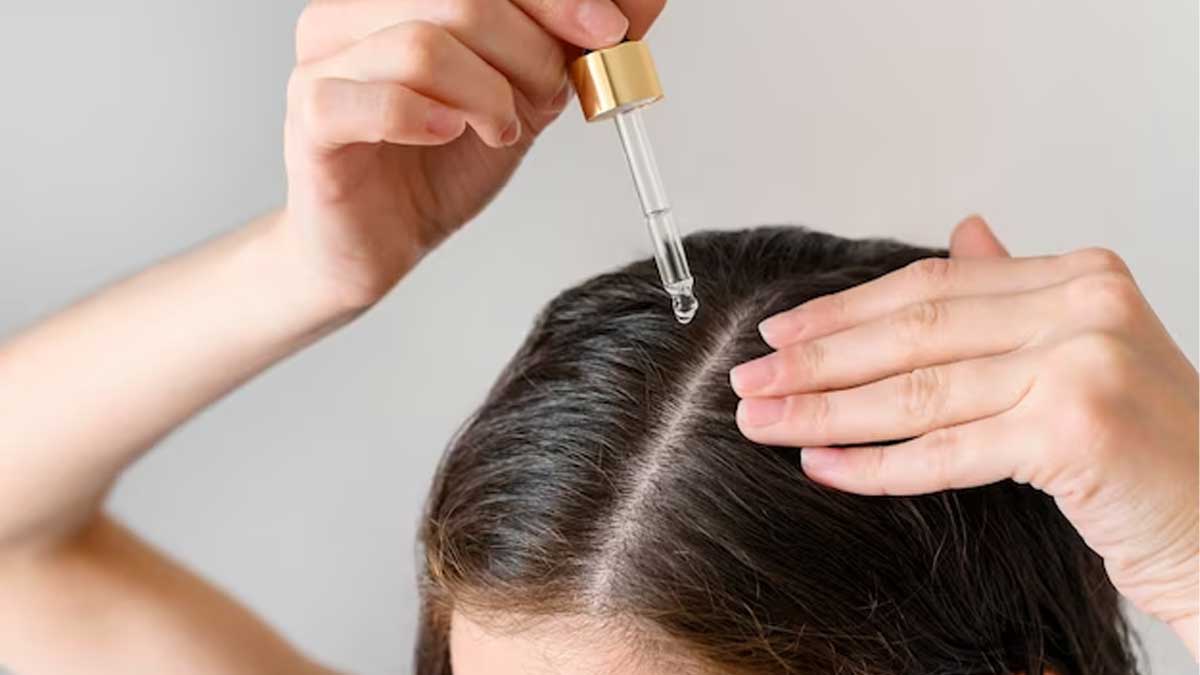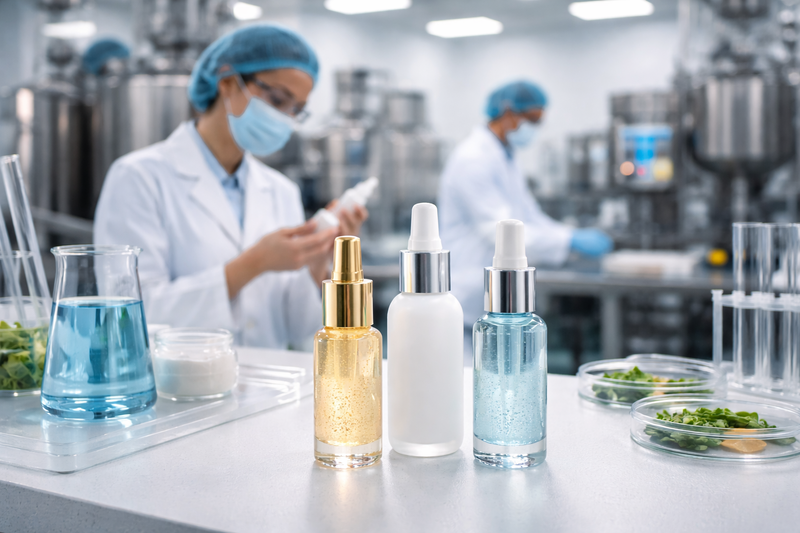How to Choose Hair Serum for Hair Growth and Thickness
Healthy, voluminous hair is more than just a beauty statement—it’s a confidence booster and a reflection of overall wellness. In today’s crowded marketplace, choosing the right hair serum for hair growth can feel overwhelming. From peptide-packed concentrates to nutrient-rich botanical elixirs, each formula claims miraculous results. This comprehensive guide dives deep into the science, top ingredients, application tips, and answers your most pressing questions—so you can confidently select and use the perfect growth-boosting serum.
Why Hair Serums Matter for Growth
Hair growth is a cyclical process—active growth (anagen), transition (catagen), rest (telogen), and shedding (exogen). While genetics largely dictate density and length potential, external factors like stress, nutrition, and scalp health play crucial roles. A well-formulated serum:
Stimulates follicles to extend the anagen phase
Improves scalp circulation, delivering oxygen and nutrients
Strengthens hair shafts, reducing breakage and shedding
Balances sebum, preventing clogged pores and dandruff
By incorporating targeted actives—such as peptides, plant stem cells, and essential oils—a growth serum can turn dormant follicles back on and support thicker, shinier hair over time.
Core Ingredients That Promote Growth
When hunting for the best hair serum for hair growth, focus on proven hair-friendly compounds:
Peptides & Growth Factors
Short chains of amino acids that penetrate the scalp and signal follicles to revive the anagen stage. Studies show copper peptides in particular can promote follicle health and boost thickness.Biotin (Vitamin B7)
Essential for keratin synthesis, biotin deficiency has been linked to hair thinning. Topical biotin serums help reinforce hair structure from root to tip.Minoxidil
The only FDA-approved topical for androgenetic alopecia. It widens blood vessels, increasing nutrient flow to follicles. Though highly effective, minoxidil may cause dryness or irritation in sensitive scalps.Plant Stem Cells & Botanical Extracts
Apple and edelweiss stem cell extracts protect follicles from aging and oxidative stress. Rosemary and peppermint oils invigorate circulation and are beloved in natural serums.Niacinamide (Vitamin B3)
Enhances scalp blood flow, supports barrier function, and smooths hair cuticles for tangle-free, polished strands.Caffeine
A vasodilator that can stimulate follicles and block DHT buildup—often included in men’s hair growth serums to combat thinning.
Types of Hair Growth Serums
1. Peptide-Enriched Concentrates
Designed for those battling thinning due to aging or hormonal imbalances, peptide serums like those spotlighted in Vogue deliver targeted amino acids directly to the scalp.
2. Oil-Based Botanical Blends
Oils such as argan, jojoba, and castor are nutrient-dense carriers for fat-soluble vitamins. Look for lightweight, non-greasy formulas if you have fine hair. Brands like Kérastase offer luxurious oil-serum hybrids to seal shine and reduce breakage.
3. Minoxidil Solutions
Clinically proven to regrow hair, these work well for genetic thinning. Often available as 2% or 5% solutions—typically applied twice daily to a dry scalp. Consult a dermatologist before use, especially if pregnant or nursing.
4. Natural & Organic Serums
Crafted without silicones, parabens, or sulfates, these appeal to eco- and health-conscious users. Ingredients like rosemary, peppermint, and lavender offer scalp-soothing benefits. Check out Discover Pilgrim’s organic collection for inspiration.
5. DIY & Homemade Elixirs
For a budget-friendly approach, mix rosemary essential oil, vitamin E, and a carrier (coconut or jojoba) for a simple growth boost. Detailed recipes are easy to find on forums like Quora.
Choosing Your Ideal Serum
With so many options, how do you pick the best hair serum for hair growth and thickness? Consider:
Hair & Scalp Type
Oily scalp? Opt for water-based, lightweight serums.
Dry or mature hair? Rich oils or peptide concentrates will add moisture and repair.
Primary Concern
Genetic thinning: Minoxidil or peptide formulas.
Postpartum or stress-related loss: Biotin + plant stem cells.
Breakage & split ends: Keratin-infused serums.
Lifestyle & Values
Vegan or cruelty-free? Look for certified brands.
Overnight vs daytime use: Some serums are thicker and best layered under a sleep cap.
Budget
High-end luxury like Kérastase Elixir Ultime vs. affordable drugstore picks featuring minoxidil or biotin.
How to Apply Hair Serum for Maximum Results
Proper application is key to unlocking a serum’s full potential:
Cleanse & Towel-Dry
Apply to freshly washed hair. Towel-dry gently—excess water can dilute the serum and reduce absorption.Section Your Hair
Use clips to create 4–6 sections. This ensures even distribution from hairline to crown.Target the Scalp
Dispense 3–5 drops (or according to instructions) directly onto the scalp. Focus on thinning areas.Massage In
Using fingertips, massage in small circular motions for 2–3 minutes. This increases circulation and aids penetration.Style as Usual
Some serums can be left in; others require rinsing after a set time. Always follow the product guidelines.Frequency
Most serums suggest daily or bi-daily use. Consistency is critical—results often appear after 8–12 weeks.
Homemade Hair Serum Recipe
For a simple rosemary hair serum for hair growth at home:
2 tablespoons jojoba oil
10 drops rosemary essential oil
5 drops lavender essential oil
1 capsule vitamin E (optional)
Combine oils in a dark glass dropper bottle.
Shake gently to blend.
Apply 5–6 drops to the scalp, massage in, and leave overnight. Rinse in the morning.
This blend harnesses rosemary’s circulation-boosting properties and lavender’s soothing aroma.
Expected Timeline: How Long Until You See Growth?
Patience is vital. Here’s a realistic timeline:
Weeks 1–4: Improved scalp health, reduced flakiness, and strengthened hair shafts.
Weeks 8–12: Noticeable decrease in shedding; initial signs of baby hairs around part lines.
Months 4–6: Visible increase in density and length; fuller crown and hairline.
Individual results vary based on genetics, overall health, and adherence to the regimen.
Debunking Common Myths
“Only Minoxidil Works”
While minoxidil is clinically proven, peptides and botanical extracts also show promising results.“Hair Serums Make You Lose Hair”
Improper use (overapplication or not rinsing when required) can weigh hair down, giving a false thinning appearance.“Natural Equals Safe”
Essential oils can irritate sensitive scalps if used undiluted. Always patch-test homemade serums.
Integrating Serums into a Holistic Routine
Maximize your serum’s efficacy by coupling it with:
Balanced Diet: Protein, iron, zinc, biotin, and omega-3 fatty acids support follicle health.
Stress Management: Chronic stress spikes cortisol, which can push follicles into shedding.
Scalp Exfoliation: Remove buildup with a gentle scrub or brush once weekly.
Supplements: When diet falls short, consider a hair-support multivitamin.
Try Xiangxiang Daily Now!
We Help You Launch New Products, And Continue To Grow. Try Us With 20% Off Your First Order!
Q&A: Your Top Questions Answered
Q: Which serum is best for hair growth?
A: It depends on your needs. For genetic thinning, a minoxidil-based serum; for general strengthening, a peptide or biotin-rich formula[^11^].
Q: Does hair serum help hair growth?
A: Yes—serums containing vasodilators, peptides, and essential oils can stimulate follicles and reduce breakage when used consistently.
Q: How long does it take for hair growth serum to work?
A: Most users see initial improvements in scalp health within a month, with visible growth after 8–12 weeks.
Q: What are the best ingredients to look for in a hair growth serum?
A: Peptides, biotin, niacinamide, caffeine, plant stem cells, and essential oils like rosemary and peppermint.
Q: How to make rosemary serum for hair growth?
A: Mix 2 tbsp jojoba oil, 10 drops rosemary essential oil, 5 drops lavender oil, and vitamin E. Apply nightly and rinse in the morning.
Further Reading
For deeper dives into hair health and advanced treatments, explore:
Table of Contents
Latest Blog Posts
Check out the latest industry trends and take inspiration from our updated blogs, giving you a fresh insight to help boost your business.




